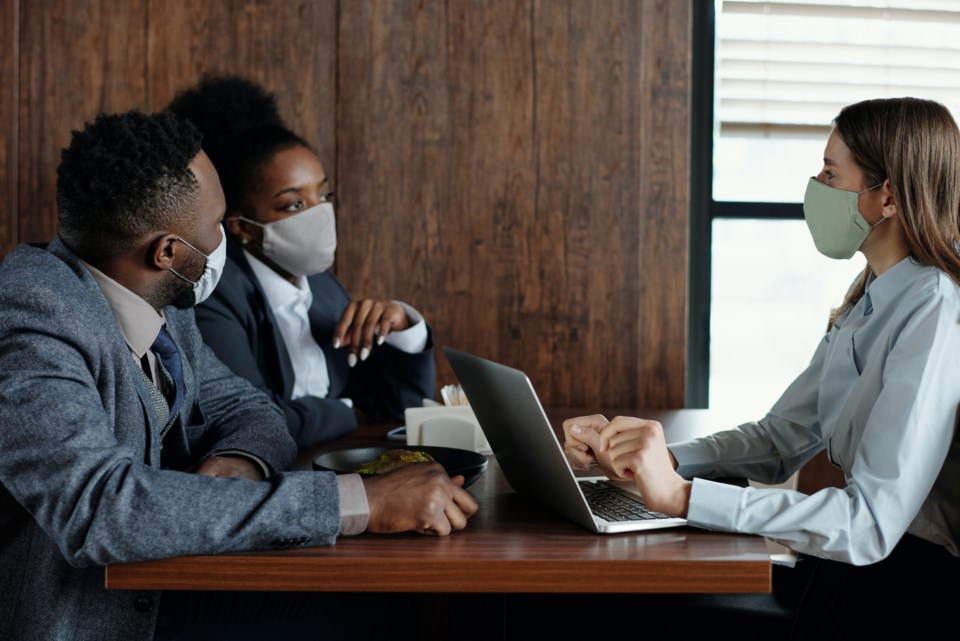Maureen Shaw believes the time is right for workplace culture to undergo a critical change – and we have COVID-19 to thank for it.
Over the last 18 months, the pandemic has dramatically disrupted our traditional views of the workplace, putting worker health and safety – including mental health – at the forefront of public discourse.
In her work mentoring managers and CEOs in health and safety leadership, Shaw hears more and more leaders speaking of this as a "transformative change.”
“When we bring people into our workplace, we don't just hire their skills; we hire the whole person,” said Shaw, a Vancouver-based expert in workplace health and safety.
“Today, we need to be talking about the whole workplace, and that is absolutely core.”
Organizations that decline to get on board could lose out in the long run.
Not only will good workers quit, Shaw predicted, but their organization's productivity will decrease, and they'll have a hard time recruiting the best workers to their business.
Shaw shared her expertise during a lunchtime virtual presentation by Workplace Safety North on Sept. 29, part of the health and safety organization's ongoing ‘Feed Your Brain Lunch and Learn’ series, which hosts guest speakers on a variety of workplace health and safety topics.
During the hour-long session, Shaw shared her insight gleaned from more than 35 years of experience in the sector.
The former CEO of the Industrial Accident Prevention Association (IAPA), Shaw led the development of the organization’s Healthy Workplace Model – adopted by the World Health Organization – which integrates leadership, physical health and safety, wellness, and psychological health into organizational strategy and culture.
She contributes advisory services to a number of organizations, including the Radiation Safety Institute of Canada, the Executive Health & Safety Council of BC, and the Manufacturing Safety Alliance of BC, as well as operating her own business, Act Three Consulting.
Even leaders who are willing to embrace the ‘whole person’ approach to workplace health and safety might struggle to get started, Shaw said. But it doesn't have to be overly complicated.
Business leaders should be genuine in their care for employees, taking to heart the idea of "putting people first,” she said.
They should also be flexible. After working from home for so long, many employees – notably those from the Millennial and Gen Z generations – want to retain the option to work remotely, Shaw noted.
Want to read more stories about business in the North? Subscribe to our newsletter.
She recommended an organization's leadership team start by having open conversations about health in the workplace; in particular, normalizing discussions about mental health and eliminating any of its associated stigmas.
Organizations can also adopt a “healthy workplace model," which is a step-by-step blueprint that helps leaders implement health-related programs in the workplace.
Addressing these structural changes and prioritizing worker health and wellbeing can go a long way to engendering trust among employees, she noted.
“Mental health is growing; illness is growing amongst people, hugely – all the data is telling us that – and it's not getting any better,” Shaw said.
“People are going to be demanding this, and employers who are wanting to retain, attract and be well-producing organizations are going to have to ensure they embed within the framework of their organizations mental health, and health and safety in general."
When it comes to adopting workplace policies around COVID vaccinations, leaders can face an uphill battle, Shaw said.
Reliable data currently isn't available on the legal ramifications of requiring workers to be vaccinated against COVID, she noted, and some employees continue to choose not to get their shots.
“You do the best that you can to educate and to encourage,” Shaw said. "But you're going to have to make some decisions.”
If an unvaccinated employee is able to do their job from home, then the employer should make that option available, she said. But if the employee must be on location to work effectively, they should be required to wear a mask at all times and should be prevented from attending face-to-face group workplace functions, such as teambuilding exercises or milestone celebrations.
“Remember that you as an employer have the responsibility to do no harm in your organization, and by having somebody unvaccinated in your organization, you could potentially be creating a hazard for others,” Shaw said. “So it's about risk assessment.”
Shaw believes that, as health and safety policies evolve, "the workplace of the future is going to be a very different place” from those we recognize today.
She envisions postsecondary and graduate programs that guide future leaders away from graphs and charts and numbers and toward organizational culture, which she believes will be essential to a company’s longevity.
Workplaces in which employees feel safe and comfortable will be able to attract highly skilled talent, while those that fail to change with the times will be left behind.
“We've got a generation coming into our workplaces who simply aren't going to put up with any garbage, and they can tell if you're being genuine or not,” Shaw said.
“It's a time when leaders are going to have to be putting organizational culture first, so they're going to be using cultures of organizations in order to attract people, because that's where people are going to want to go.”




